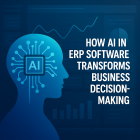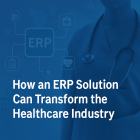Maximize Efficiency with These Features in Distribution ERP Software
Making sure products reach clients efficiently and effectively is where distribution comes in. Maintaining a well-oiled supply chain requires vigilant inventory management, shipment coordination, and order handling. Manually managing these duties might result in inefficiencies and mistakes as firms expand and distribution networks get more intricate. A distribution ERP software is useful in this situation. Here are the key features you should look for when finding the right kind of software that can greatly aid in the streamlining of distribution processes!
6 Features To Find In Distribution ERP Software
1. Advanced Forecasting and Demand Planning
Keeping track of inventory to meet present and future demand is one of the most important parts of distribution. When you do things by hand, like using charts or asking sales teams for information, you can make mistakes and waste time.
A successful cloud-based ERP solution should be able to do advanced planning and forecasting of demand. These tools combine past sales information with estimates about the future. This helps you find the best inventory levels, get rid of extra stock, and keep the supply chain running smoothly. You may improve customer satisfaction with accurate forecasts by making informed purchase decisions and responding fast to changes in the market.
2. Comprehensive Warehouse Management
You can’t afford to lose ground in the distribution industry if you don’t have a well-managed warehouse.
Look for distribution ERP software that has strong tools for managing warehouses. This includes making the best use of room in the warehouse, optimizing the layout, and helping with complicated fulfillment processes. RFID scanning and real-time inventory tracking ensure that you know exactly where your products are, eliminate picking errors, and enhance overall operational accuracy.
A warehouse management system that works well together can make things a lot more efficient and productive.
3. Seamless Electronic Data Interchange (EDI)
Electronic Data Interchange, or EDI, is an important part of modern marketing. EDI lets partners automatically send business papers like purchase orders, invoices, and shipping manifests to each other, without any help from a person. This lowers the chance of mistakes and speeds up the process.
Choose ERP software with EDI built in to make processing documents faster, communicate better with partners, and ensure you meet store requirements. When dealing with a lot of transactions or complicated conversations in the supply chain, this feature comes in very handy.
4. Efficient Sales Order Management
Keeping track of sales orders well is important for keeping things running smoothly and ensuring customers are happy. Every part of the sales order process should be automated by an ERP system, from getting the order and approving it to fulfilling it and keeping track of it. This automation lets you see the status of orders, inventory amounts, and interactions with customers in real-time. You can eliminate billing mistakes, better handle orders, and give customers self-service portals to track and change their orders with automated workflows and real-time updates. As a result, precision goes up and the customer experience gets better all around.
5. Insightful Profitability Scorecards
To make smart strategic choices, you need to know how profitable your partnerships are.
Look for ERP software that has profitability scorecards that show in detail how each customer and provider is doing in terms of margins, costs, and performance. This tool lets you figure out how your relationships affect your finances, handle chargebacks, and, if necessary, negotiate better terms. With a full study of profitability, you can make smart choices that will improve your bottom line and make your business run more smoothly.
6. Powerful Business Intelligence (BI)
Business Intelligence (BI) expands the capabilities of your ERP system by offering detailed insights into your company’s performance. A good business intelligence (BI) module in your ERP software can look at huge amounts of data, find patterns, and give you ideas that you can use. This helps you make choices based on data, predict changes in the market, and make early adjustments to your strategies.
GET THE RIGHT DISTRIBUTION ERP SOFTWARE
For businesses and warehouses looking for a robust and reliable solution, the FINAC ERP Cloud Solution stands out. With its comprehensive features tailored for distribution, Finac ERP offers advanced forecasting, seamless warehouse management, and powerful business intelligence.
By leveraging our ERP software, you can transform your distribution operations, respond swiftly to market changes, and drive your business forward with confidence.







Recent Comments